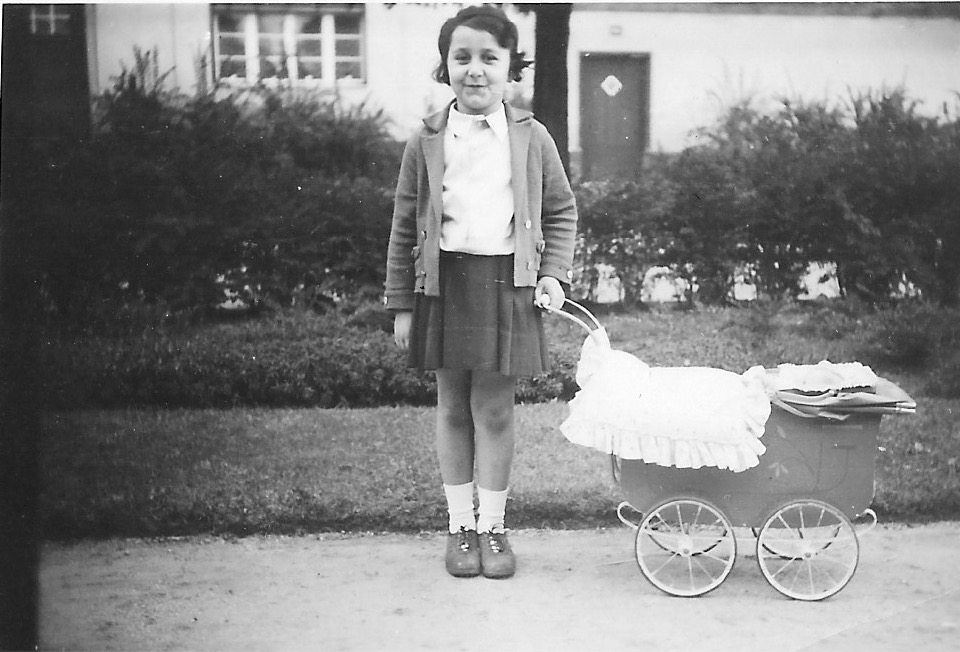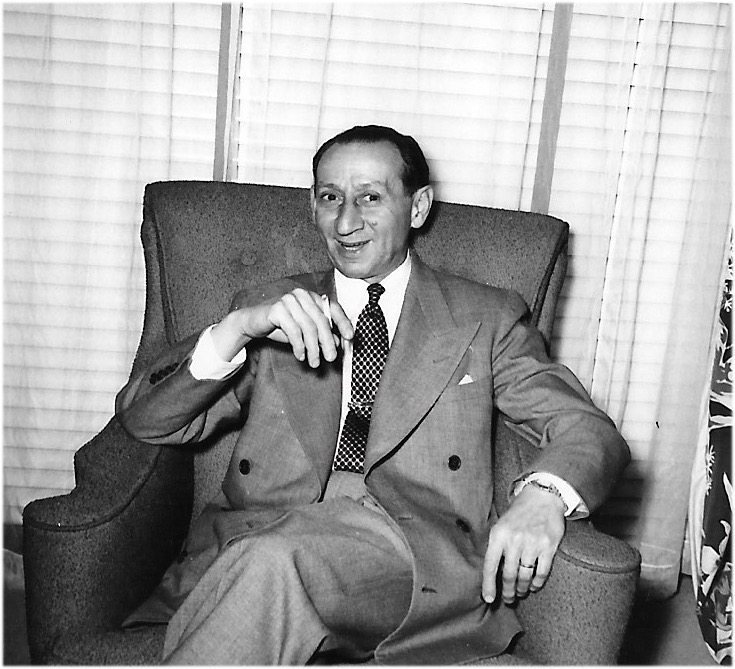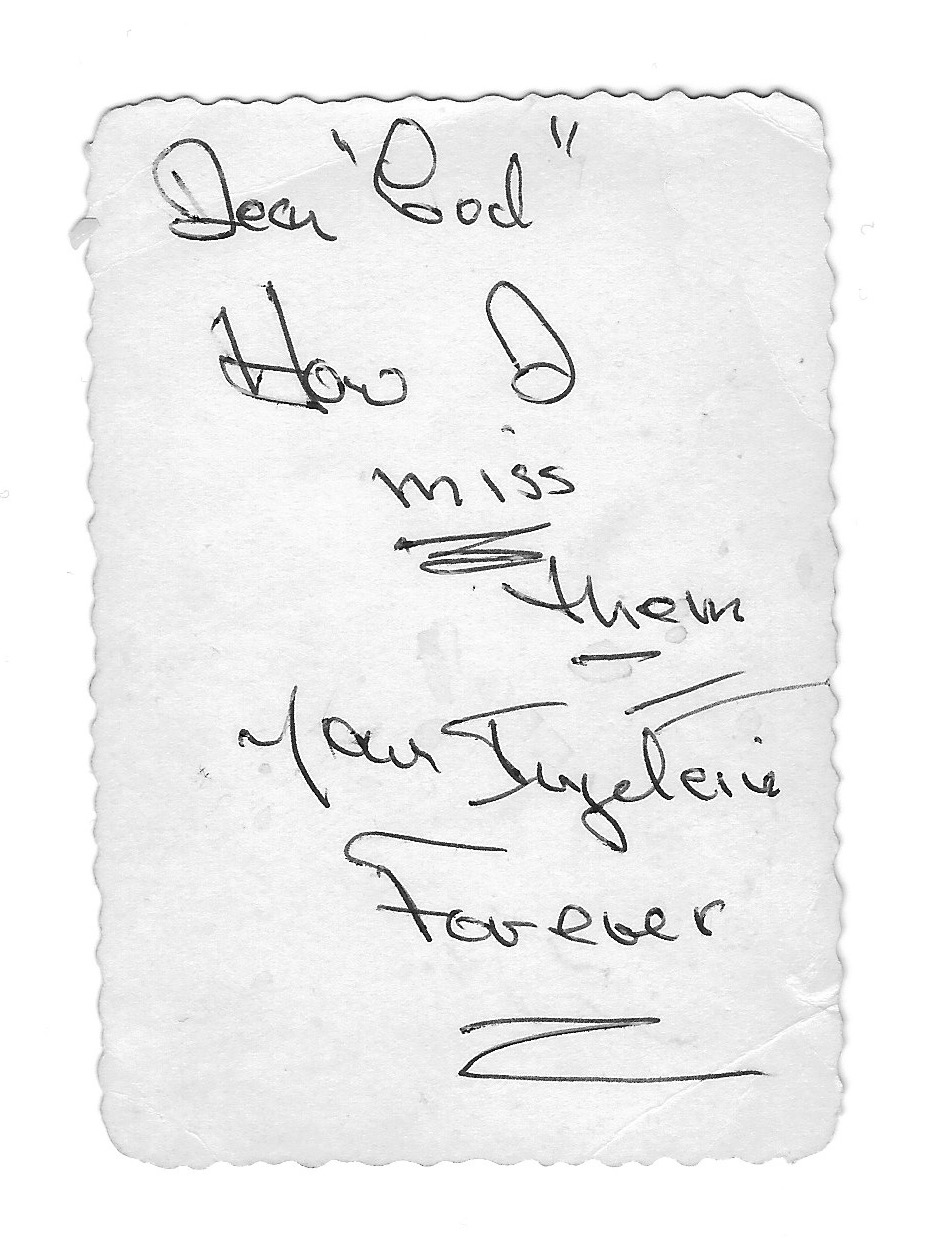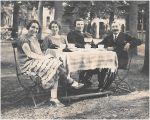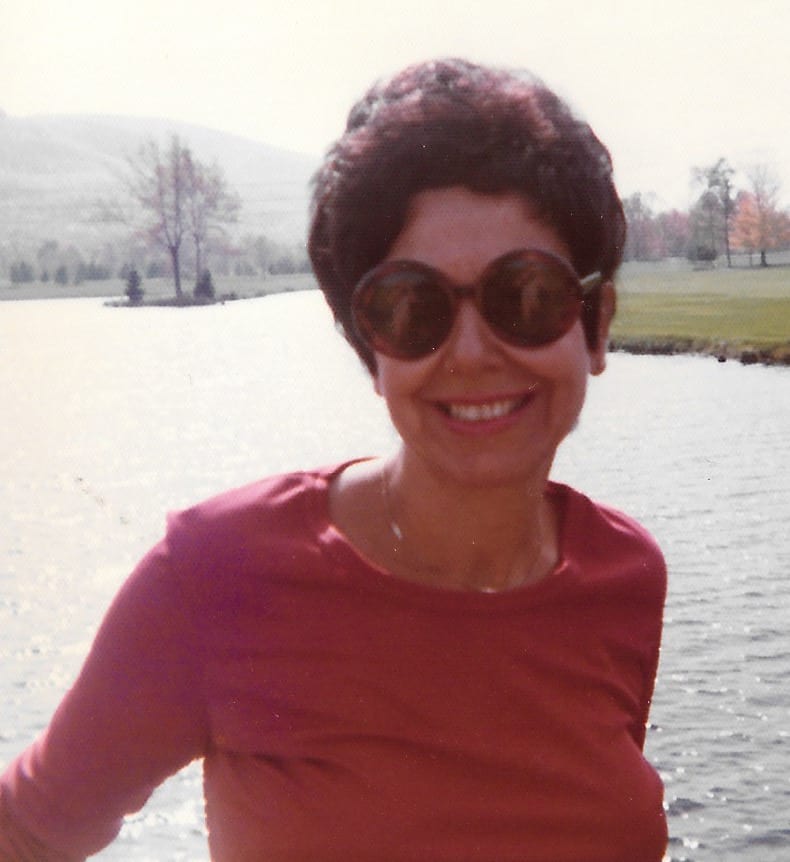- Local Survivor registry
- INGE MARKOWICZ
- Local Survivor registry
- INGE MARKOWICZ
Survivor Profile
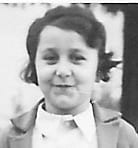
INGE
MARKOWICZ
(1929 - PRESENT)
PRE-WAR NAME:
INGE DORIT PANTHAUER
INGE DORIT PANTHAUER
PLACE OF BIRTH:
JOHANNESTHAL, GERMANY
JOHANNESTHAL, GERMANY
DATE OF BIRTH:
SEPTEMBER 30, 1929
SEPTEMBER 30, 1929
LOCATION(s) BEFORE THE WAR:
BERLIN
BERLIN
LOCATION(s) DURING THE WAR:
CUBA; BRONX, NEW YORK; PLAINFIELD, NEW JERSEY
CUBA; BRONX, NEW YORK; PLAINFIELD, NEW JERSEY
STATUS:
CHILD SURVIVOR, REFUGEE
CHILD SURVIVOR, REFUGEE
RELATED PERSON(S):
ALEXANDER MARKOWICZ - Spouse (Deceased),
HELAINE BERNSTEIN - Daughter,
AMY MCBRIDE - Daughter,
JEFFREY MCBRIDE - Grandson,
JENNA MCBRIDE - Granddaughter
-
BIOGRAPHY BY NANCY GORRELL
Inge Markowicz was born on September 30, 1929 in Johannesthal, a suburb of Berlin, Germany. She describes her childhood as “fine” until age seven when she and other Jewish children were no longer allowed to attend school with non-Jews. Her parents sent her to a yeshiva in Berlin. From that moment on Inge recounts the hardships of travel as a young child. She went with her friends, but then when she had to transfer, she was on her own. It was very hard for her. As a consequence, in 1937, her parents moved to Berlin. Her father was a CEO of a children’s store and her mother was a housewife. They had a nanny and a cleaning girl. The family was observant, and Inge remembers with great fondness going to the synagogue across the street, one of the largest in Berlin, with her father every Friday and Saturday. “The temple was so gorgeous,” she said, “It was my second home.” The rabbi never said to me “go upstairs. I sat with my father. I had friends too. I had a wonderful time going there.” Inge describes in detail the horror of seeing Kristallnacht. “I saw them torching the temple.” She also describes the mobs breaking the glass windows and torching of her grandfather’s art gallery. Then came the disappearance of her father that night (he was in hiding in Hamburg) and the struggle for her mother and herself to flee Berlin.
Inge’s mother had registered her to go to England on the children’s transport, but when the time came, her mother could not send her because she was her only child. Inge and her family made their way to Hamburg. They left on the second to the last ship out of Hamburg—Orinoco. Inge describes her father making all the arrangements (her mother and herself under German quota, her father under Polish quota), the loss and dispersal of her extended family, the arduous voyage, “it was horrible,” and her father, mother and herself arriving in Cuba. There they lived for a year and a half (her father much longer) until they could get a sponsor, which turned out to be Ginger Rogers.
Inge and her mother left Cuba for Miami and then the Bronx where they reunited with her mother’s sister, Rose. The family was nearly destitute by this time living with Rose temporarily and then a small apartment until Inge’s father joined them. For a time, he worked in the garment district. Then the family decided to move from New York City to Plainfield, New Jersey where they had some friends. Inge describes her first impression of Plainfield: “What a gorgeous city.” From then on she says, “We lived the rest of our lives in New Jersey.” She credits the Council of Jewish Women for helping her family get their first apartment in Plainfield and “filling the refrigerator with food.” Inge graduated Plainfield High School and Drake Business School and ended up being a retail buyer.
-
SURVIVOR INTERVIEW:
INGE MARKOWICZ INTERVIEW
Date: December 2, 2016
Location: Markowicz Residence
Interviewer: Nancy Gorrell
Q: What was your early childhood like?
Up to the age of seven, my childhood was fine. I was in a Catholic school in Johannesthal. At that time we were all thrown out of school because we were Jewish, and then my parents sent me to Yeshiva in Berlin. I went there on a streetcar all by myself. I was with some of my other friends, but when I had to transfer, it was very hard. In 1937 approximately, my parents decided to move to Berlin. Then it was easier for me. My father was working as a CEO for a children’s company. He was on a threshold of opening a new department store. My mother was a housewife. My mother had a nanny and cleaning girl.Q: What memories do you have of Berlin?
I’m an only child and it stinks and I hated it. I used to yell at my parents, “Why didn’t you have another child?” It was a very bad time. Kristallnacht, you know. We were living in Berlin. That night my father disappeared. My mother was so worried; she didn’t know where he went. He was taken in by a Jewish family whose father was picked up by the Gestapo.Q: What was your religious life like?
We lived across the street from one the biggest synagogues in Berlin. I went every Friday and Saturday to the temple. I used to be the first one to the synagogue. And the rabbi would say, “Do your parents know where you are?” My father would follow after me. I sat in the temple with my father. The temple was so gorgeous. The rabbi never said to me to go upstairs. It was my second home. I had friends too. I had a wonderful time going there.Q: What were your memories of Kristallnacht?
I saw them torching the temple. That was a horror to me because it was a place I loved so much. It is very difficult for a child. Sometimes I think I was a child, but I was so grown up, at eight years old. My mother was very concerned about her parents. They were torching the most beautiful synagogues and businesses. My grandfather had an art gallery of oil paintings and he was also a glazer. My grandmother would help him put store windows in. They were both one in a million. The mobs broke the glass windows and torched the gallery.Q: Tell us about your grandparents’ background.
My grandparents and father were born in Poland, and my mother was born in Germany. After that night they were picking up Jewish men and my father had disappeared. Finally my father got in touch with us. He had made his way to Hamburg, and he told my mother to take me and my grandparents to Hamburg. He was in hiding. My parents registered me to go to England with the children’s transport.Q: Did you go on the children’s transport?
No. My mother couldn’t do it. I was her only child. I stayed with my family. We made our way to Hamburg, and we left on the second to the last ship out of Hamburg—Orinoco. There was one ship after that –Iberia—and that was very iffy. My father made all the arrangements. It took three weeks. In Berlin the Nazi’s came to our place, and the Nazi’s took all our things, and they ripped the Jewish star off my neck. I remember I was very upset about that. It was an awful feeling. I had rocks thrown at me because I was Jewish. I was called Judah. We got out just in time.Q: How did you get out?
My father had three brothers and three sisters. My uncle Max went with his family to Ecuador. He was my favorite uncle. My father had one sister who went to Australia. Everybody was gone. Another brother had passage to Panama. He didn’t go and listen to my father. They were all gassed. We had passage to China or Cuba. So we went to Cuba. We had to have an affidavit and a visa. My mother and I were under German quota; my father under Polish quota. The voyage was horrible. Everyone was seasick and you had pneumonia. I remember my grandmother sitting right next to me. She was a tower of strength. Once you got to Cuba, you were not allowed to work. We lived in Cuba a year and a half; my father much longer.Q: How did you emigrate from Cuba to America?
My mother’s sister’s husband, uncle Kurt, a very handsome man, also in Cuba, asked Ginger Rogers (in Cuba at the time) to sponsor me and my mother. And she did. But she said she was not responsible once we got to the United States. We got on a boat to Miami, my father and my grandparents stayed behind. My mother was a total wreck, a disaster. In Cuba I went to the yeshiva. I made arrangements in Miami to go on a Greyhound bus to the Bronx because I spoke English and Spanish as well as German. All of a sudden I was very grown up. I became the mother.Q: Where did you settle in America?
My mother’s sister Rose was in the Bronx. When my mother saw New York and the fire escapes, she said, “Everyone in New York lives in prisons!” My aunt Rose was married to Kurt, and he picked us up and we went to their two-bedroom apartment. We stayed with them for several days, and then we found ourselves a room to stay in. I was the mother and my mother was the child, especially because I spoke English. I waited on tables and I went to Yeshiva. My father joined us in approximately a year or two and my grandparents came as well. They had to wait for their quotas. My mother started cleaning other peoples’ homes, and she found a furnished room for all of us. In the Bronx I had wonderful teachers. They were real teachers. PS 11. They came to class with dictionaries.Q What happened when your father came to New York City?
My father went to the garment district to get a job. He did anything he could— dishwasher, painter, at that time people could get jobs. We were in the United States when Pearl Harbor occurred. My parents had friends in New Jersey that they knew so they decided to move to New Jersey, and we moved to Plainfield.Q: What was Plainfield, New Jersey like?
What a gorgeous city. My father got a job with an awning company and they made shades. I was a teenager then. My father really wanted to go to Atlanta where he had colleagues. But they got an apartment in Plainfield instead. The Council of Jewish Women were so wonderful. They got us an apartment and filled the refrigerator with food. From then on, we lived the rest of our lives in New Jersey. I graduated Plainfield High School and I went to Drake Business School, and then I ended up being a buyer in retail. I hated short hand and typing but I loved math. -
HISTORICAL NOTES:
Kristallnacht
Also known as The Night of the Broken Glass. On this night, November 9, 1938, almost 200 synagogues were destroyed, over 8,000 Jewish shops were sacked and looted, and tens of thousands of Jews were removed to concentration camps. This pogrom received its name because of the great value of glass that was smashed during this anti-Jewish riot. Riots took place throughout Germany and Austria on that night.
-
Sources and Credits:
Credits:
SSBJCC Survivor Registry Interview by Nancy Gorrell, December 2, 2016; Biography by Nancy Gorrell; Family and historic photographs donated by Inge Markowicz.


